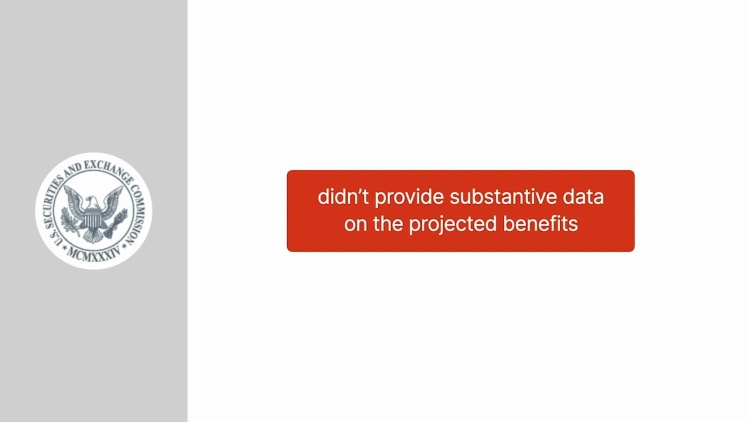Business Roundtable v. Securities and Exchange Commission
United States Court of Appeals for the District of Columbia Circuit
647 F.3d 1144 (2011)

- Written by Sara Rhee, JD
Facts
Exchange Act Rule 14a-11 of the Securities and Exchange Commission (SEC) (defendant) provided shareholders with a method with which to nominate and elect directors. The goal of the rule was to allow the proxy process to function as a replacement for in-person meetings of shareholders. The SEC rejected proposals to allow the board of directors or shareholders of an individual company to decide whether to incorporate Rule 14a-11. The SEC argued that the rule would lead to cost savings for shareholders, due to reduced printing and postage costs, as well as reduced expenditures on advertising. The SEC also indicated that Rule 14a-11 would reduce collective-action and free-rider concerns and could improve shareholder value and board performance. The SEC did admit that the rule would impose costs upon companies and shareholders that were related to the preparation of the required disclosures and could have an adverse effect on company and board performance by distracting management. The Business Roundtable (plaintiff) provided the SEC with numerous comments and studies, demonstrating the possible negative consequences associated with Rule 14a-11. The Business Roundtable then petitioned for review of Rule 14a-11.
Rule of Law
Issue
Holding and Reasoning (Ginsburg, J.)
What to do next…
Here's why 907,000 law students have relied on our case briefs:
- Written by law professors and practitioners, not other law students. 47,100 briefs, keyed to 996 casebooks. Top-notch customer support.
- The right amount of information, includes the facts, issues, rule of law, holding and reasoning, and any concurrences and dissents.
- Access in your classes, works on your mobile and tablet. Massive library of related video lessons and high quality multiple-choice questions.
- Easy to use, uniform format for every case brief. Written in plain English, not in legalese. Our briefs summarize and simplify; they don’t just repeat the court’s language.





